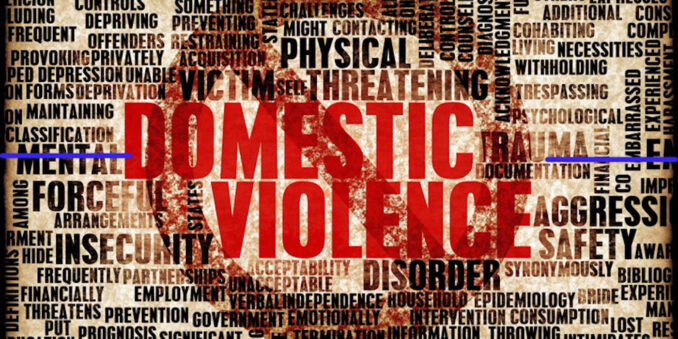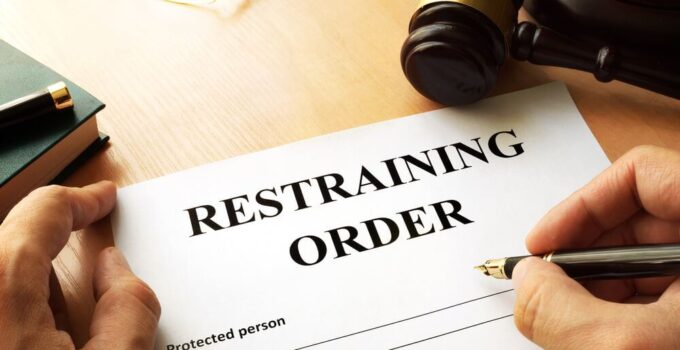An individual who is feeling threatened in New Jersey can request a restraining order to stay safe. This order is received against the person who is causing them the threat. The restraining orders have been made legal and accessible under the Prevention of Domestic Violence Act. Anybody getting a restraining order must be very careful about how they lead their lives as it can greatly impact their professional and personal life. Usually, when the restrictions are brought in, one is not very clear about the regulations. So if one fails to abide by the orders and violates the restrictions, they might face serious consequences or might get subjected to criminal prosecution as well.
What is the restraining order?

Source:facebook.com
A restraining order from a court is issued to restrict the defendant from arriving at a certain distance or contacting the plaintiff for a specified amount of time. The main motive of this order is to protect the plaintiff from any ensuing act of violence. If you feel threatened or unprotected at any time, a restraining order defense attorney is going to help you out. They will ensure the orders are passed in a way that the defendant won’t be able to contact the protected party and their friends, acquaintances, or relevant persons. Click here for more details.
What are the grounds for the order?
The restraining order can be issued based on multiple grounds. Listed below are some types of alleged conduct, where these orders can be helpful:
- Assault
- Harassment
- Sexual assault
- Stalking
- Kidnapping
- Threats
- False imprisonment
Who may seek the order?
A person who is allegedly filing complaints of domestic violence against another individual can seek restraining orders. Usually, temporary restraining orders are granted in the first go to ensure the first line of safety. If you are a victim of sexual misconduct, you shouldn’t delay in seeking the order and ask for immediate protection from the abuser. The misconducts often refer to the following:
- Rape
- Sexual assault
- Attempted rape
- Lewdness
Temporary restraining orders (TROs)

Source:performancesuretybonds.com
Temporary restraining orders are issued to temporarily protect a plaintiff against their alleged abuser. These orders are released after the case of domestic violence is filed with the court or with the local police. After the TRO is made, the superior court judge will listen to the petitioner’s side of the story and will decide if a TRO is at all necessary to protect them. If they find it necessary, a final order will be issued in the next hearing.
Is violating a restraining order a crime?
An individual is held under criminal contempt if they are found to be violating the restraining orders. The punishments of the crime can, however, vary depending on the degree of violation of the order. These can, at times, be called a separate crime or can be regarded as a disorderly person’s offense. If in any case the violation is regarded as a fourth degree crime, the individual might face punishments for up to 18 months in prison along with a $10,000 fine. If the violation is not regarded as a separate crime, then the punishment might be for up to six months of jail and a $1,000 fine.
How does one receive a protective order?

Source:theleaflet.in
A protective order can be received by anyone who is above 18 years or is an emancipated minor. They can be a victim of one or more of the listed crimes in the Prevention of Domestic Violence Act and can seek protection against individuals they find threatening. This can be their intimate partner, which is inclusive of their spouse, their former spouse, their parent or any family member, a date or any former date. The victim needs to apply to the court where the jury will be reviewing the application. If the application is approved, a temporary restraining order will be issued against the person who is charged of the harassment.
The order is issued in a manner which prevents the abuser to contact the victim in any possible way. They are also forbidden to come anywhere near to them. This order also has multiple different additional orders to it. This includes child custody, child support, and financial support. The abuser will not be allowed to possess any firearms after the issuance of the order.
Can a temporary restraining order be violated?

Source:pinterest.com
A restraining order can be violated in the court of law, irrespective of it being temporary or permanent. If a TRO is granted to you, you are restricted from appearing in front of the defendant before the court orders the final hearing. Any firearm that the defendant possesses would be confiscated by the court’s orders. If they reside with the victim at the same household, they need to leave the residence. Once the temporary order is issued, it takes about 10 days to announce the date for the hearing of the final restraining order.
During the hearing, both the applicant and the defendant need to be present in the court. They should provide the evidence and the witnesses in order for the trial to proceed. The court will assess the information provided by both the parties and would understand if the order needs to be made permanent.
If the order is made permanent, the defendant needs to provide their photo and fingerprints that become a part of the police database. The final order remains valid till one of the two parties get back to the court to get the order removed. This is a very cumbersome task and requires multiple hearings.
What should you do if you have violated a restraining order?

Source:facebook.com
The restraining orders, when violated, carry multiple consequences with them. Some of them might alter your life completely. Your freedom can be compromised if you are convicted of criminal contempt. If you understand that the order has been violated in any way, knowingly or unknowingly, you should let an experienced attorney handle it for you. They are familiar with the criminal contempt involved in cases of domestic violence and would be your best support. They will also guide you on how you can fight for your liberty without breaking the law.
A restraining order can drastically change the life of a defendant and hence they need to have an experienced attorney. This would be helpful till the trial ends.





